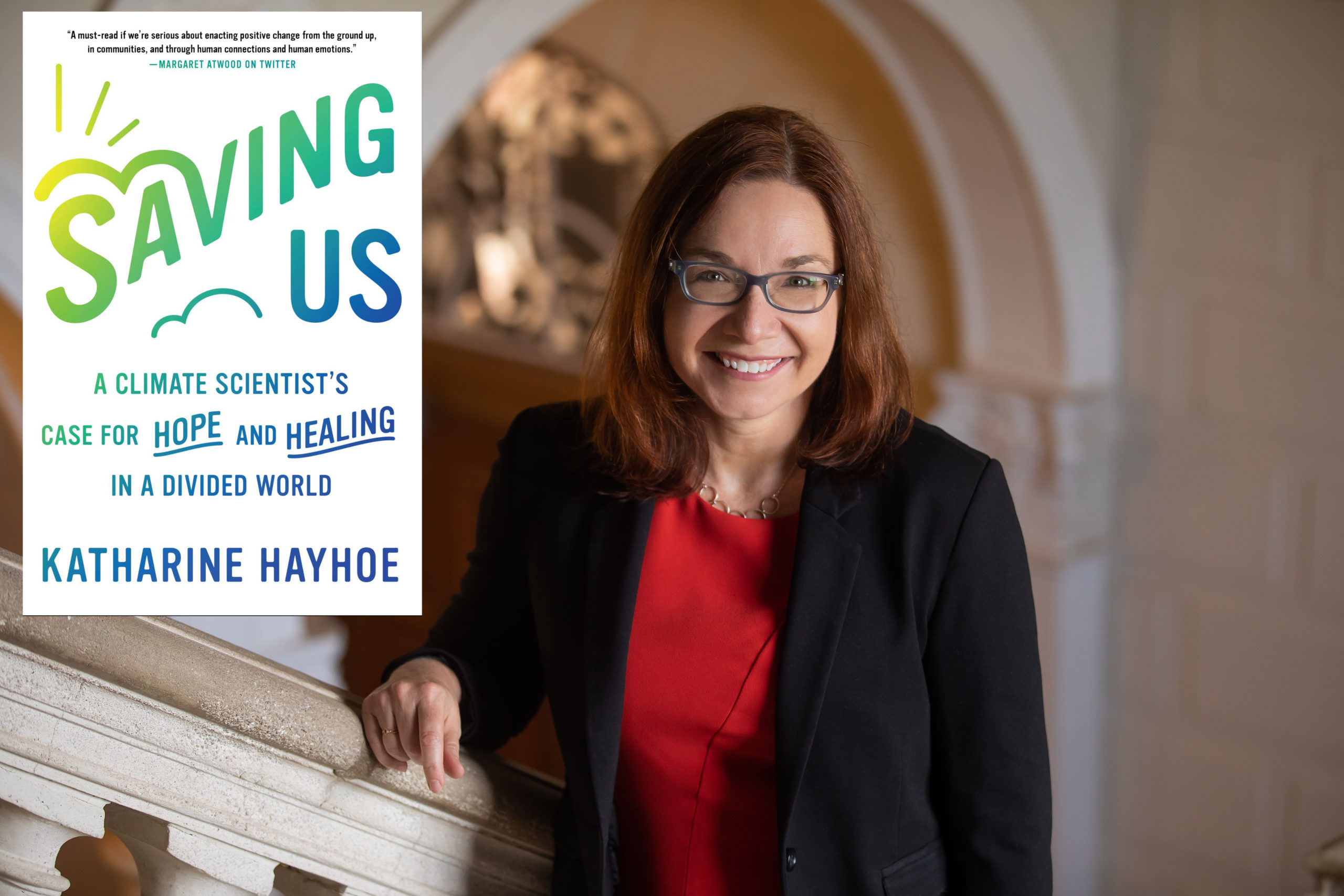
Prof. Katharine Hayhoe brings some hope for the planet
Interview of Katharine Hayhoe – NPR Program ON BEING, October 21, 2021
Katharine Hayhoe is one of the most esteemed atmospheric scientists in the world. She’s made her mark by connecting dots between climate systems and weather patterns and the lived experience of human beings in their neighborhoods and communities.
She’s also an ambassador, if you will, between the science of climate change and the world of evangelical Christian faith and practice, which she also inhabits. To delve into that with her is to learn a great deal that refreshingly complicates the picture of what is possible and what is already happening, even across what feel like cultural fault lines. If you want to speak and walk differently on this frontier, this is a conversation for you.
Katharine Hayhoe is a professor of political science at Texas Tech University, and now Chief Scientist of the Nature Conservancy. She founded the Atmospheric Research and Consulting Firm, has been named one of Time ‘s 100 Most Influential People (2014), and serves as the climate ambassador for the World Evangelical Alliance. She is an outstanding public speaker in great demand.
Her new book is ‘Saving Us: A Climate Scientist’s Case for Hope and Healing in a Divided World.’
Find the transcript for this show at onbeing.org — Katharine Hayhoe – “Our future is still in our hands” ~ Listen (50:58 minutes) and Read the Transcript.
#######…………………#######…………………#######
NOTE ~ Consumers of information from National Public Radio contend that NPR does its job well. A study conducted by the polling firm Knowledge Networks and the University of Maryland’s Program on International Policy Attitudes (University of Maryland at College Park) showed that those who get their news and information from public broadcasting (NPR and PBS – Public Broadcasting Service) are better informed than those whose information comes from other media outlets. In one study, NPR and PBS audiences had a more accurate understanding of the events in Iraq versus all audiences for cable and broadcast TV networks and the print media.
